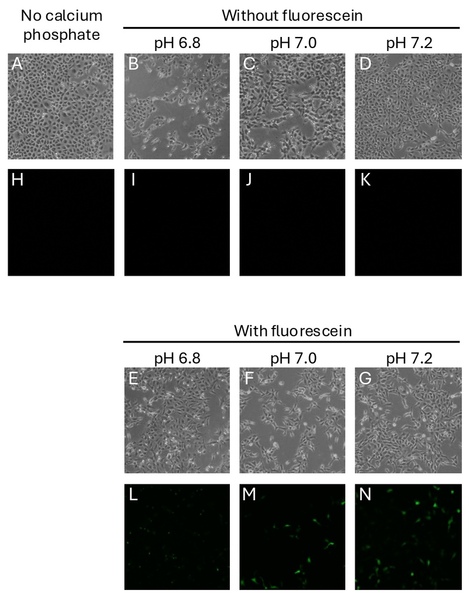Higher pH level increases the efficacy of calcium phosphate-mediated intracellular delivery
(1) Kang Chiao International School, (2) Institute of Biomedical Informatics, National Yang Ming Chiao Tung University
https://doi.org/10.59720/24-161
The entry of drugs into cells is crucial to their effectiveness because most drugs exert their therapeutic effects intracellularly. Cells are enclosed by the plasma membrane, which consists of lipids, proteins, and a glycocalyx and serves as a protective barrier limiting drug entry into cells. Changes in the external environment can alter the properties of the membrane, affecting the uptake of extracellular molecules. Among various factors, the pH of the cellular environment substantially influences the properties of the plasma membrane and drug ionization, the process by which a drug gains or loses an electric charge in response to the pH change. Calcium phosphate is commonly used as a filler for drug formulations. To date, a few studies have been done on the effect of pH levels on the efficiency of calcium phosphate for drug delivery. A lower pH increases the Ca2+/PO43- ratio, leading to a higher positive charge. Consequently, we hypothesized that a lower pH could enhance the interaction of calcium phosphate with the negatively charged cell membrane, thus facilitating drug delivery into cells. To test this hypothesis, we used fluorescein as a model molecule for delivery and examined the impact of various pH levels on delivery efficiency. Surprisingly, we found that the efficacy of the delivery increased with higher pH levels. Although the results contradicted our initial hypothesis based on the chemical properties of calcium phosphate, our findings underscore the complexity of intracellular drug delivery, wherein changes in pH levels influence drug transport.
This article has been tagged with: